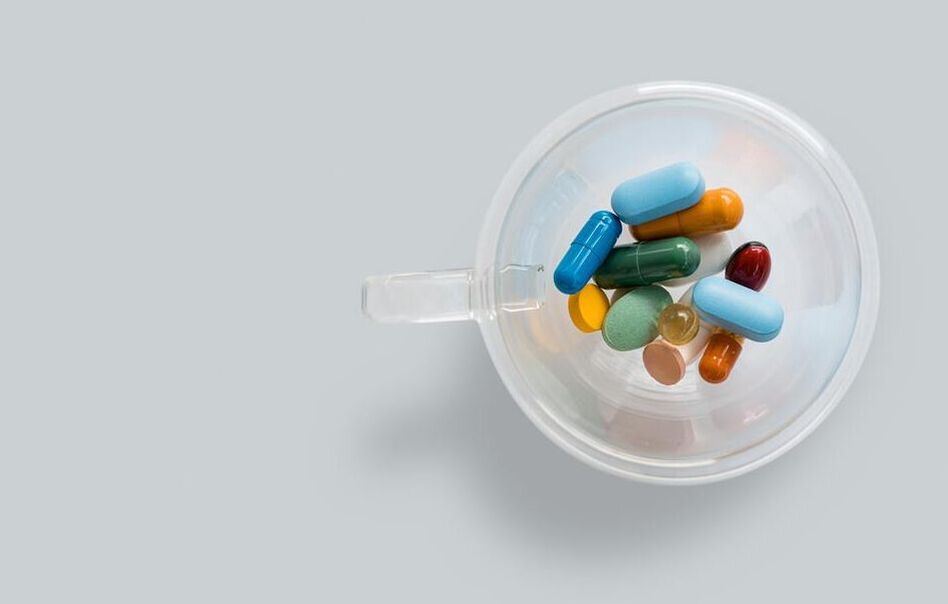Give Yourself the Gift of Good Health" Good health from a bottle sounds really nice, doesn't it? Might be why the supplement industry in the U.S. is worth billions! As a personal trainer/coach, I am occasionally asked about supplementation. It’s my job to provide information, not prescribe or sell you supplements. It’s not surprising that one response to the COVID-19 Pandemic is a further increase in the use of supplements, including those viewed as immune support such as vitamins C and D and Zinc. Despite their popularity, current research results are mixed. Both Vitamin C and Zinc supplementation have been shown to potentially shorten the duration of a common cold. Vitamin D deficiency may be linked to developing more severe illness. However, as of now, research doesn’t suggest that these supplements will make you cold, flu, or COVID-proof. Of course, you need sufficient vitamin C and D and zinc in your body but does that warrant supplementation? That depends on your diet and habits. Supplements are considered any product intended to add one or more ingredients to your diet including vitamins, minerals, herbs/botanicals, amino acids, or other substances. Many of us have been taking supplements since childhood. Growing up in the 1980s, I gladly took my chewable Flintstones multivitamin daily. Interestingly, despite their common usage over so many years, the jury is out on how much multivitamins actually help us to stay healthy. Studies published in 2013 in the journal Annals of Internal Medicine, found that “multivitamin and mineral supplements didn’t work any better than placebo” in relation to health improvements related to certain health conditions such as cardiovascular disease. In 2019, results of a CRN (Council for Responsible Nutrition) Consumer Survey on Dietary Supplements found the highest overall dietary supplement usage to date, with 77 percent of Americans reporting they use dietary supplements. The most common supplements being used included multivitamins, individual vitamins such as C, D and E, minerals like calcium, magnesium, and iron, protein supplements, omega-3 fatty acids, probiotics, and turmeric. With so many people using them, they have to be safe and effective, right? Well… supplements sound harmless but there is good reason to be a bit weary before adding them to your diet. The FDA has regulations in relation to manufacturing practices and labeling but supplements aren’t evaluated the same way that drugs are.
From the National Institutes of Health Office of Dietary Supplements: “Research studies in people to prove that a dietary supplement is safe are not required before the supplement is marketed, unlike for drugs. It is the responsibility of dietary supplement manufacturers/distributors to ensure that their products are safe and that their label claims are accurate and truthful. If the FDA finds a supplement to be unsafe once it is on the market, only then can it take action against the manufacturer and/or distributor, such as by issuing a warning or requiring the product to be removed from the marketplace. The manufacturer does not have to prove that the supplement is effective, unlike for drugs. The manufacturer can say that the product addresses a nutrient deficiency, supports health, or reduces the risk of developing a health problem, if that is true. If the manufacturer does make a claim, it must be followed by the statement “This statement has not been evaluated by the Food and Drug Administration. This product is not intended to diagnose, treat, cure, or prevent any disease.” Many supplements are generally regarded as safe. However, negative health effects can occur due to health conditions, interactions with medications, or taking more than the recommended dose. A study in the New England Journal of Medicine found that “an estimated 23,000 emergency department visits in the United States every year are attributed to adverse events related to dietary supplements. Such visits commonly involve cardiovascular manifestations from weight-loss or energy products among young adults and swallowing problems, often associated with micronutrients, among older adults.” On a personal note, my husband learned the hard way that more Vitamin C isn’t better; he ended up with a large, painful kidney stone after taking a high-dose Vitamin C supplement (which is a possible side effect of which we weren’t aware!) This is not to say that supplements don’t have a place in your diet. It simply means you should research the supplement before spending your money and adding them to your routine. Individuals who have deficiencies due to dietary choices/restrictions/limitations, illness, pregnancy, etc. will find that supplements are often recommended by medical professionals. Supplements may also be helpful for issues other than deficiencies and can be worth exploring. A few questions to consider:
Using Dietary Supplements Wisely – Lots of information and additional links. Dietary Supplement Fact Sheets – A collection of fact sheets on several dietary supplements from the National Institutes of Health: Office of Dietary Supplements. Search for NSF Certified Dietary Supplements – Explore brands that have been independently tested. Examine.com - One of my favorite sites to check out research and information on supplements. They offer a couple of subscription services if checking out new research studies on nutrition and supplementation is your thing. A Few Supplements Worth Investigating In the interest of time, only a few of the many, many supplements are covered below. Based on my reading, these in particular may be of interest to women in mid-life.
I hope this blog post gave you some things to consider and will be helpful as you make decisions about what's best for you in the coming year. If you are looking to build better habits and get moving, contact me for a free consultation. I’ve got a few spots open for one-on-one training (in-person or virtual). Cheers to the new year!
0 Comments
Leave a Reply. |
Archives
June 2023
Categories
All
|

 RSS Feed
RSS Feed